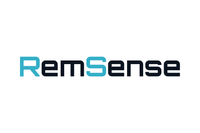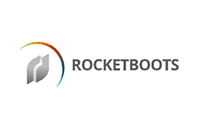Global AI Stocks: 9 Biggest AI Companies in 2025
What are the biggest AI stocks in 2025? Learn about the largest AI companies by market cap on US, Canadian and Australian exchanges.

As the artificial intelligence (AI) market continues to grow, there are many AI stocks for investors to choose from on top exchanges like the NASDAQ, TSX and ASX.
AI technology has made strong inroads into several key industries, including logistics, manufacturing, finance, healthcare, customer service and cybersecurity.
While AI has been around for a long time, this explosion in popularity is due to advancements in generative AI, starting with the release of OpenAI’s ChatGPT. Since then, many major tech firms entered the space with their own generative AI offerings or now include AI technology in their own innovative products.
A McKinsey report states: "AI is a widely applicable, general-purpose technology with use cases in every industry and business function — and thus lots of innovation and interest — and it is scaling rapidly across the business landscape."
Here the Investing News Network profiles some of the biggest AI stocks by market cap on US, Canadian and Australian stock exchanges. Data for this AI stocks list was gathered on October 8, 2025, using TradingView’s stock screener.
American AI stocks
According to Ascendix, there are around 90,000 AI companies worldwide, of which 32 percent are headquartered in the US. One of the major factors fueling growth in the American AI market, states Statista, is “the growing investments and partnerships among technology companies, research institutions, and governments."
Below are three of the top US AI stocks by market cap.
For more US AI stocks, check out our list of 12 generative AI stocks and 5 AI ETFs.
1. NVIDIA (NASDAQ:NVDA)
Market cap: US$4.59 trillion
The global leader in graphics processing unit (GPU) technology, NVIDIA is designing specialized chips used to train AI and machine-learning models for laptops, workstations, mobile devices, notebooks and PCs.
The company is partnering with a number of big-name tech firms to bring various key AI products to market.
Through its partnership with Dell Technologies (NYSE:DELL), NVIDIA is developing AI applications for enterprises, such as language-based services, speech recognition and cybersecurity.
The chipmaker has also been instrumental in the buildout of Meta Platforms’ (NASDAQ:META) AI supercomputer. Called the Research SuperCluster, it reportedly uses a total of 16,000 NVIDIA GPUs.
In early 2024, Taiwan Semiconductor Manufacturing Company (NYSE:TSM) and NVIDIA released the world's first multi-die chip specifically designed for AI applications: the Blackwell GPU. Blackwell’s architecture allows for the increased processing power needed to train larger and more complex AI models.
NVIDIA's biggest AI news for 2025 concerns its US$100 billion partnership with OpenAI announced on September 22. NVIDIA will fund a massive data center buildout to become the backbone of OpenAI's superintelligence ambitions.
2. Microsoft (NASDAQ:MSFT)
Market cap: US$3.9 trillion
Microsoft has committed billions to OpenAI, but the tech behemoth has also built its own AI solutions based on the chatbot creator’s technology: Bing AI and Copilot. OpenAI licensed its technologies to Microsoft in 2020.
In late May 2024, Microsoft unveiled its Copilot+ Windows PCs, its first range of AI-equipped PCs. According to the company, they are the “fastest, most intelligent Windows PCs ever built.”
An update to Windows 11 in October 2024 included upgrades to the Copilot AI platform capabilities, including the introduction of the ability to speak directly to the AI helper.
Microsoft’s moves into generative AI have translated into higher revenues for its Azure cloud computing business and a higher market cap — the tech giant pushed past the US$3 trillion mark in January 2024 and its managed to maintain that level up even after the March 2025 stock selloff as a result of tariffs and trade wars by US President Donald Trump.
Microsoft announced an US$80 billion investment in US-based AI infrastructure earlier this year, followed by the integration of its Copilot AI tools into Microsoft 365. In October 2025, the company launched an open source framework that will allow developers to build out agentic AI applications.
3. Alphabet (NASDAQ:GOOGL)
Market cap: US$2.96 trillion
Alphabet holds court with both Microsoft and NVIDIA as part of the tech sector’s Magnificent 7, and its foray into AI has similarly brought the tech giant much success. The firm created the AI chatbot Gemini, formerly known as Bard, which is integrated into products such as its Google Suite, the Chromecast browser and the Google Pixel phone line.
Alphabet's market cap surpassed the US$2 trillion mark in April 2024.
That same month, Google introduced a custom AI chip designed for its cloud services customers. The technology uses British semiconductor company Arm Holdings' (NASDAQ:ARM) AI architecture. In the same week, Google revealed its new A3 Mega AI processor based on NVIDIA’s H100 Technology.
At the NVIDIA GTC conference in 2025, Alphabet and NVIDIA announced a series of AI-focused partnerships in the sectors of robotics, drug discovery and manufacturing.
As of October 2025, Alphabet was testing a Gemini AI app redesign with the goal of improving user experience and increasing engagement through more visuals and scrolling feed rather than a chat interface.
Canadian AI stocks
Recognized as a world-leading AI research hub, Canada ranks eighth out of 83 countries in the Global AI Index. Since 2017, the Canadian government has invested hundreds of millions of dollars into accelerating the research and commercialization of AI technology in the country through the Pan-Canadian AI Strategy.
Research by IBM (NYSE:IBM) shows Canadian businesses are increasingly adopting AI, with 56 percent of IT professionals in large enterprises saying they plan to increase deployment of the technology in their operations in 2025.
Below are three of the top Canadian AI stocks by market cap.
For more Canadian AI stocks, take a look at our list of 5 small-cap Canadian AI stocks.
1. CGI (TSX:GIB.A,NYSE:GIB)
Market cap: C$27.89 billion
Montreal-based CGI is among the world’s largest IT systems integration companies, and offers a wide range of services, from cloud migration and digital transformation to data analysis, fraud detection and even supply chain optimization. Its more than 700 clients span the retail, wholesale, consumer packaged goods and consumer services sectors worldwide.
Through a partnership with Google, CGI is leveraging the Google Cloud Platform to strengthen the capabilities of its CGI PulseAI solution, which can be integrated with existing applications and workflows.
CGI is working to expand its generative AI capabilities and client offerings. In early March 2024, the company launched Elements360 ARC-IBA, an AI powered platform for brokers and insurers to settle accounts in the UK broking industry. In September 2024, it signed the EU's AI Act pledge to work for trustworthy and safe AI development.
The company's AI-powered CGI DigiOps toolkit won the Association of Chartered Certified Accountants (ACCA) India Award 2024 for Excellence in Digital Transformation in February 2025. CGI DigiOps is used in several industries, including the energy and utilities, and retail sectors. “This award for digital transformation excellence is a testament to our commitment to delivering end-to-end AI-powered solutions to achieve meaningful outcomes for our clients," Rakesh Aerath, President, CGI Asia Pacific Global Delivery Centers of Excellence.
2. OpenText (TSX:OTEX)
Market cap: C$13.52 billion
Ontario-based OpenText is one of Canada’s largest software companies. The tech firm develops and sells enterprise information management software. Its portfolio includes hundreds of products in the areas of enterprise content management, digital process automation and security, plus AI and analytics tools.
OpenText serves small and large enterprises, as well as governments. Its AI & Analytics platform has an open architecture that enables integration with other AI services, including Google Cloud and Azure. It can leverage all data types, including structured or unstructured data, big data and the internet of things to create interactive visuals.
Last year, OpenText launched Cloud Editions 24.1, which includes enhancements to its OpenText Aviator portfolio.
OpenText has also been expanding its AI-powered cybersecurity offerings.
In early 2025, the company launched OpenText Core Threat Detection and Response, which leverages AI-driven behavioral analytics to detect insider threats and cyberattacks. The company sold of its eDocs business unit in October 2025 in order to increase focus on building out its AI capabilities and offerings.
3. Propel Holdings (TSX:PRL)
Market cap: C$1.04 billion
Propel Holdings is a fintech company that has designed an AI-powered lending-as-a-service platform for consumers seeking alternative access to credit outside of the traditional banking system. Its operating brands include Fora Credit, CreditFresh, MoneyKey and QuidMarket. With operations in Canada, the US and the UK, the company claims that is has "helped consumers access over one million loans and lines of credit and over two billion dollars in credit."
In September, Propel ranked sixth on the TSX30 2025 annual ranking, which recognizes the 30 best-performing companies over a three-year period on the Toronto Stock Exchange.
The company also ranked 147th in the 2025 Report on Business magazine's ranking of Canada's top growing companies by three year revenue growth, with Propel's revenue climbing 247 percent.
Australian AI stocks
Australia's AI innovation and number of AI companies are growing consistently, according to a June 2025 government report on the country's AI ecosystem.
According to the report, of the 412 public AI firms it identified, "Most public AI companies are well-established organisations that have operated in Australia for years or decades. Their expanding AI capabilities primarily stem from strategic shifts, increased investment in internal AI capabilities and acquisitions of AI-developing firms."
Below are three of the top Australian AI stocks by market cap.
For more ASX AI shares, check out our list of the 5 biggest ASX AI stocks.
1. NextDC (ASX:NXT)
Market cap: AU$10.8 billion
NEXTDC is Australia’s leading data center operator, with facilities currently operational or under development throughout Australia. The company also has data centers under development in New Zealand, Malaysia and Japan.
NEXTDC’s clients include some of the world's largest cloud providers, such as Amazon (NASDAQ:AMZN) Web Services, Microsoft Azure, and Alphabet's Google Cloud. The company also obtained NVIDIA's DGX-Ready Data Centre Program certification, enabling it to optimize NVIDIA's AI platforms and power advanced AI data centers in Australia.
In its financial report for its fiscal 2025 ended June 30, 2025, the company reported total revenue of AU$427.2 million, a 6 percent increase from the same period in the year prior. Its net revenue was up 14 percent to AU$350.2 million.
NEXTDC is the 2025 recipient of the Australian Competitive Strategy Leadership Recognition in the data center services industry.
2. Megaport (ASX:MP1)
Market cap: AU$2.56 billion
Megaport is a network-as-a-service provider that offers a software-defined network platform to businesses, data centers and cloud providers. Although it calls Australia, home, the company has operations in over 25 countries.
Megaport has strategic partnerships with cloud service providers like Amazon's (NASDAQ:AMZN) Amazon Web Services and Microsoft's (NASDAQ:MSFT) Microsoft Azure. Users of its Megaport Virtual Edge can use devices such as routers and firewalls without the need for physical hardware in a data center.
The scalability and on-demand nature of Megaport’s technology makes it ideal for businesses employing AI tools. The company’s AI Exchange platform connects customers with an ecosystem of over 30 AI service providers.
3. Nuix (ASX:NXL)
Market cap: AU$1.01 billion
Sydney-based Nuix is a leading provider of data processing, investigative analytics and intelligence software. Its client base includes legal, compliance, forensic investigations, cybersecurity and data governance sectors.
The company’s patented Nuix Neo technology uses advanced deep learning techniques to better train AI models for more efficient, scalable and cost-effective document classification.
Launched in July 2023, Nuix Neo is accessed through a browser-based, collaborative interface, and includes end-to-end automation, investigative analytics and AI-enabled workflows.
This year, Nuix inked a deal with Indian multinational technology firm Tech Mahindra to provide AI-driven cyber risk management and data analytics tools. Tech Mahindra services the banking, insurance, telecommunications and government sectors. Additionally, in mid-September, the company won a multi-year contract to supply forensic analysis software to the tax authority of Rhineland-Palatinate state in Germany.
FAQs for AI stocks
Which company is leading the AI race?
Google and Microsoft are battling it out for king of the AI hill. While Goldman Sachs sees Alphabet’s Google as leading the AI race, other analysts are pointing to Microsoft as the clear frontrunner. Microsoft stands to benefit in a big way from its billions of dollars investment in OpenAI's ChatGPT as advancements in generative AI may have the potential to increase the company's revenues for its Azure cloud computing business.
Which country is doing best in AI?
North America is the global hotspot for advancements in AI technology and is home to the majority of the world’s largest AI providers. Techopedia positions the US as the primary hub for AI development, and many of the world’s leading tech giants are headquartered there. According to the report, China comes in a close second.
Don't forget to follow us @INN_Technology for real-time news updates!
Securities Disclosure: I, Melissa Pistilli, hold no direct investment interest in any company mentioned in this article.


